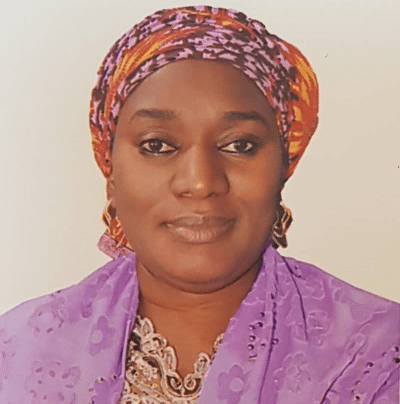MONDAY X-RAY: Kandeh Kolleh Yumkella Was Here

THURSDAY, October 24, 2019 the University of Lagos Alumni Association played host to a distinguished global citizen and diplomat who came to remind us of what it will take us to develop. He is Sierra Leonean-born Dr. Kandeh Kolleh Yumkella. Yumkella was United Nations’ Under Secretary-General (2013 to 2015), UN Secretary General’s Special Representative and Chief Executive Office on Sustainable Energy for All (SE4All) Initiative between 2013 and 2015, and for eight years (2005 to 2013), Director-General of the United Nations Industrial Development Organisation (UNIDO). He also contested as a presidential candidate in his country.

Yumkella was in the country to deliver the Golden Jubilee lecture of the association under the presidency of John Momoh, the Chairman of Channels Media Group. Yumkella, a friend of Nigeria having worked, stayed, consulted and made enormous friends in Nigeria in the last twenty years plus came to tell us some fundamental truths on how to drive our sustainable development agenda.
Counter-terrorism: NAF to conduct simulation exercise on Kaduna, Birnin Gwari road
Specifically, the lecture titled How Nigeria can achieve the sustainable development goals by 2030, reinforced what many of our compatriots have been drumming about, namely, we are suffering from the Garden of Eden syndrome, where there is everything but no value addition.
Of the 17 Sustainable Development Goals (SDGs) to transform our world by 2030, which this columnist had earlier written about, Yumkella aligned himself with the prioritisation of five areas as advanced by the African Development Bank’ (AfDB) president, Nigeria’s Dr. Akinwunmi Adesina. The high five priorities are: Feed Africa (Nigeria), Light Up and Power Africa (Nigeria), Integrate Africa (Nigeria), Industrialise Africa (Nigeria), and Improve quality of life of the African (Nigerian) people.
Yumkella presented incontrovertible statistics on the status of our country on Poverty, Hunger, Health and Wellbeing, Quality education, Gender inequality and Climate action. He was miffed that despite the abundance of nature and resources, Nigeria is like the prodigal son mismanaging and misusing nearly all. He was worried more particularly about the pathetic situation with our energy situation, the wastes and lack of value addition in our oil and agricultural sectors, and lack of vision in the society.
He highlighted five major transitions the country should consider. These are: proper management of the Demographic transitions for us to gain a competitive edge; managing Trade and Industrial transitions within the context of the 4th Industrial Revolution (Technology); investing in Energy Transitions and Infrastructure development to reduce the cost of doing business and enhance systemic competitiveness of strategic productive sectors; Building Climate Resilience in all public and private investments and growth strategies to ensure environmental sustainability and over the long run; and managing Democratic cum Leadership Transitions to produce enlightened and accountable leadership (a developmental state) with a clear vision to deliver greater human development.
Our current relevance as in most other African countries in the global economy is abysmal. He painted a more pathetic picture in the energy sector where lack of electricity results in 2 to 3% loss of GDP (Gross Domestic Product) annually. He canvassed for the following actions to ensure productive energy transition: effective energy planning, integrate energy planning with mining and agricultural planning, regional power pools and energy trade, exploit off-grid and mini-grid, system flexibility, and solvency of utilities (sector governance).He quoted from a publication stating that ‘annual loss of US$1 billion (N360 billion) of revenue, if properly exploited has the potential to create 300,000 jobs, produce 600,000 metric tonnes of LPG per year and generate 2.5GW of power.’
Talking specifically, he stated that Nigeria presently the largest economy in Africa and the 26th in the world with almost 40 million in the middle class as consumers, and in 2030, the economy could be 20th largest in the world. But this according to Yumkella, requires: An annual GDP growth rate of 7.1%; rapid infrastructure expansion through investment of up to $1.5 trillion; Energy revolution; moving 70 million Nigerians out of poverty; and meeting the needs of 160 million people in consumer-class households.
He advised the country to accelerate the achievement of the Sustainable Development Goals and the AfDB High Five. Consequently, he proposed five drivers in six sectors. The three drivers are: Sustained deliberate and targeted public investment in growth hubs and industrial corridors by committing 10% of GDP over 10 years; Catalysing a domestic energy revolution as an enabler; and Investing in Knowledge and Skills including revamping the National Youth Service Corps into a Technical and Entrepreneurship Corps including business, technological and scientific revolution.
The six sectors canvased by Yumkella are: Creating Technical hubs, Creative industry, Consumer demand in the Retail sector, Agricultural business to feed our 200 million population that is projected to be 400 million in 2030 (becoming third largest then); Downstream petro-chemicals for value creation and addition; and Energy (including LPG, LNG and Power).
To prevent the foregoing from being utopian, he called for the aligning of 4ps. These are: Politics, Public policy, Pricing and Public-Private partnerships.
Bismarck Rewane (renowned economist), Adejoke Orelope-Adefulire (SSA to the President on SDGs) and Ndidi Nnoli-Edozien (Sustainability & Governance chief with Dangote Industries) discussed the presentation of Yumkella from their different perspectives.
The take away from all these is that our future is assured if, as a nation, we are prepared to do things right, we have the right people in the right places, our polity is sanitised, our society is prepared to navigate change and institutionalise good governance, and we abhor corruption like the plague. These are the parts to a just and sustainable egalitarian society.
Yumkella, thanks for coming to remind us on what to do to be a successful nation.
E-mail: drcfassyaoyusuf@gmail.com
Mobile: 0809 615 8530 (SMS only)








